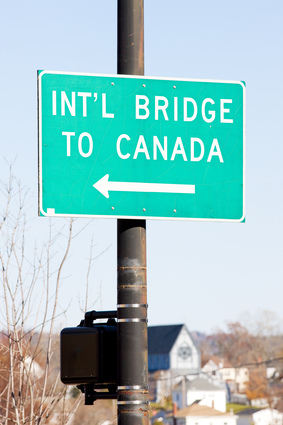The new bridge over the Detroit River will create thousands of jobs in Michigan during and after its construction and add billions of dollars to the state’s economy, according to a report released Thursday by the Center for Automotive Research in Ann Arbor.
The proposed New International Trade Crossing connecting Detroit and Windsor will mean about 12,000 jobs during each of the four years of construction, according to the 19-page report, “Analysis of the Economic Contribution of Constructing the New International Trade Crossing: A New Bridge Linking Detroit and Windsor.”
Those jobs include construction associated with the bridge and plaza and spinoff jobs in Michigan and the U.S., as well as road construction jobs provided by a matching highways grant from the federal government, the report said. The spinoff jobs include everything from retail to manufacturing to services.
Building the bridge also would pump billions into the state economy. Michigan’s gross state product (the total value of all goods and services produced in the state) would increase by $1.5 billion during the four-year project, and another $1.5 billion would be paid to workers.
In addition, the state would collect $150 million in income taxes. Also, state taxes on the other projects that will be built with federal money coming as part of the bridge deal would add an additional $180 million in revenue.
The state expects $2.2 billion in federal matching funds as a result of the $550 million contribution for the bridge project from the Canadian government. The federal government typically matches the state contribution on a 4-to-1 ratio. The money can be used on highway and infrastructure projects throughout the state; it’s not limited to the bridge project.
“Initially, the construction of the bridge itself will serve as an economic stimulus, providing jobs and state revenues,” said Kim Hill, the study’s lead researcher. “Once construction is completed and the bridge operations have begun, the region’s additional freight shipping capability will attract private-sector investment.” When completed, bridge operations will mean 1,400 permanent jobs, including toll booth, plaza and maintenance workers, Hill said.
Private investment in the $2.1 billion project will create 6,800 permanent spinoff jobs in a variety of areas, the report said.
The economic impact is $630 million a year in gross state product, as well as a $613 million increase in personal wages and a $62 million rise in state tax revenue over four years.
It’s all welcome news for the construction industry.
“This is the single largest construction project in southeast Michigan in many, many years,” said Kevin Koehler, president of the Construction Association of Michigan. “It will put a lot of our guys sitting on the benches in our halls back to work.”
The bridge, he said, dwarfs other local building projects such as the new Wayne County jail and the Cobo Center expansion.
The project will have wider-reaching effects, with the addition of matching federal dollars for highway improvements.
“Clearly, a project of this scale, along with the federal matching funds, will have employment and economic effects that will impact many diverse industries throughout the state,” Hill said.
Mike Johnston, vice president of government affairs with the Michigan Manufacturing Association, called the project an “economic multiplier” because of the jobs it will create outside of bridge construction and operations. “It’s great news,” he said. “The bottom line is that it will create jobs.”
See the full story in the The Detroit News: http://www.detroitnews.com/article/20120615/BIZ/206150369#ixzz1xv1OShbY

